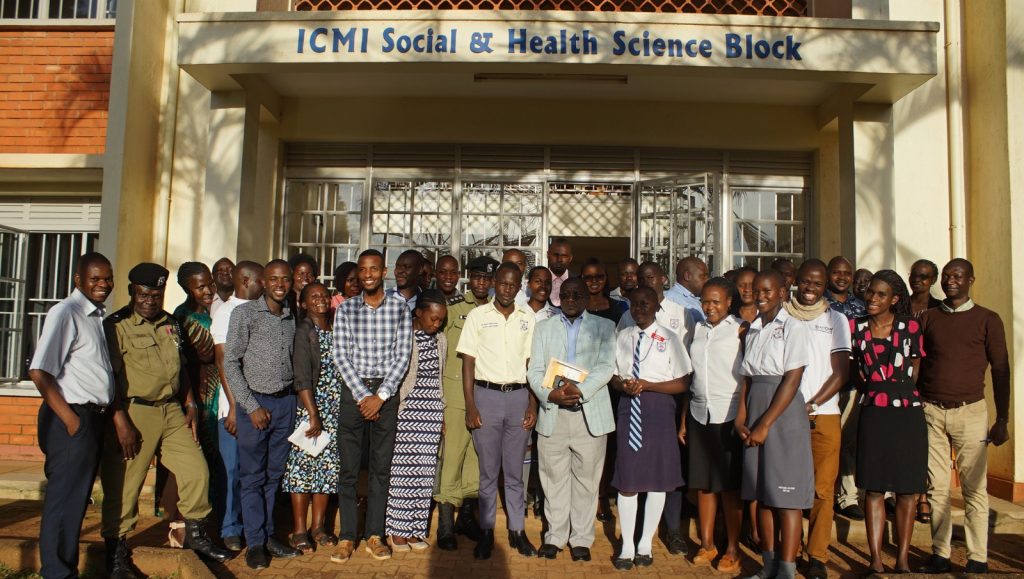By faith Zipporah
Uganda Christian University (UCU) research team, in collaboration with AfriChild, held a research dissemination workshop at the ICMI building. It was revealed that there is growing peer victimisation among children in schools.
Peer victimisation is evident in schools and at home, with physical and emotional victimisation being the main types of victimisation. Emotional victimisation is often overlooked, but it can cause more harm to victims.
The Officer in Charge O/C of UCU, Asp Dickens Tar, says they visit schools at the beginning of the term to sensitise them about criminal offences. The police come in and act on any crimes committed. Tar encourages schools to talk to children about peer victimisation because information is power, and awareness can reduce peer victimisation.
“We sensitise schools that invite us to talk to the children, and at the end we don’t receive any cases because we had talked to them before,” says Tar.

Joseph Kiva, a member of the research team who also doubles as a lecturer in the UCU School of Journalism, Media, and Communication, says that they conducted research to find out what is happening in schools, especially at different levels.
Peer victimization among children is a growing problem, especially in schools. It causes a lot of problems for some children, and there is a need to find ways to eliminate this vice among them.
“I am glad that among the attendees we had representatives from the school who I am sure will be able to implement the recommendations from our research,” says Kiva.
Perinah Mulamba, a teacher at Bishops Senior, suggests that, as teachers, they should call the students who practice this habit aside and talk to them.
“As teachers, we should always first call the students who practice this habit aside and talk to them,” says Mulamba.
Guidance and counseling are considered one of the ways to eliminate peer victimization in schools. The research team found that many victims were traumatized by this topic and found it hard to talk about their experience. They were able to get information with the help of the counselors they worked with on each team.
As a parent, Rosemary Bwire suggests that one should not be quick to support their children because the child might be in the wrong.
“When my child comes to me to report an issue, I will listen to them, and this is something that most parents don’t like doing, and this can help eliminate peer victimization,” says Bwire.
Since peer victimisation happens among children, fellow children also play a big role in eliminating peer victimization. Catherine Amutuhire, a student leader at Bishop Senior, says that as a student leader, she can talk to them and bring them closer to God through prayer, as the Bible says that you cannot solve anything with a fight.
The research team discovered that peer victimisation is higher among girls than boys, especially emotionally. Emotional victimisation comes from classes like the high and low classes in society, and physical victimisation is higher among boys than girls.


